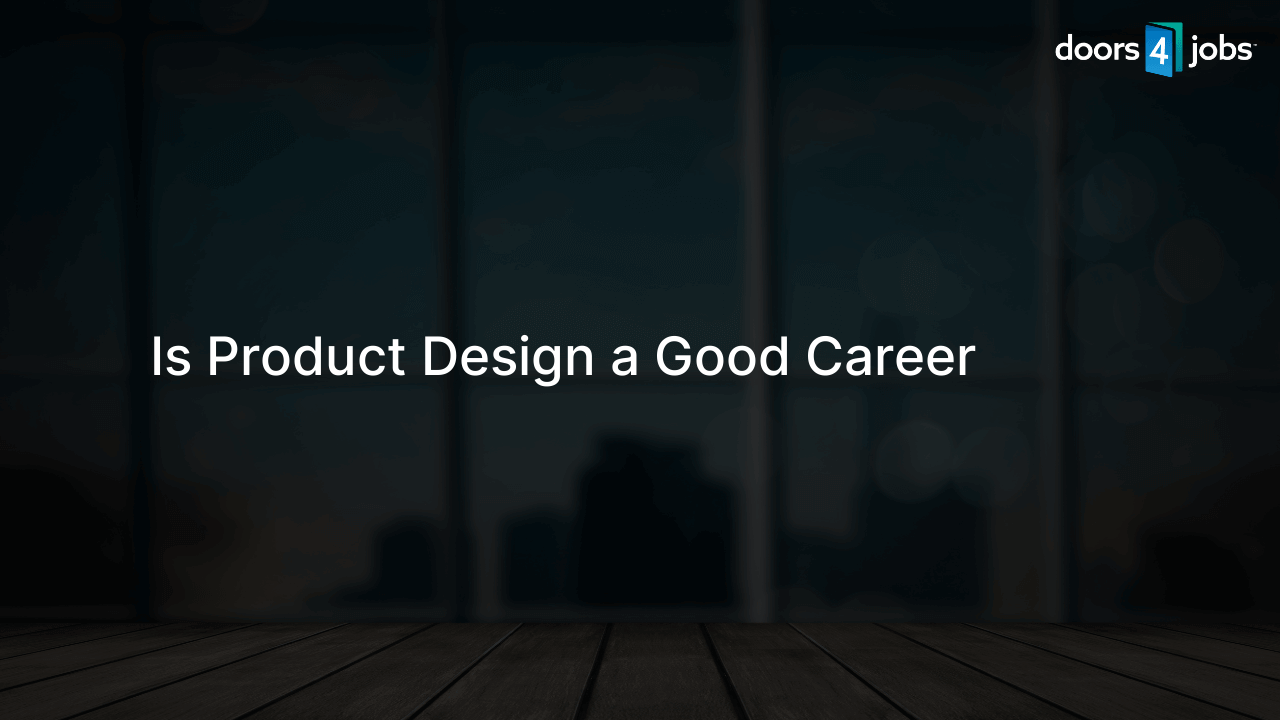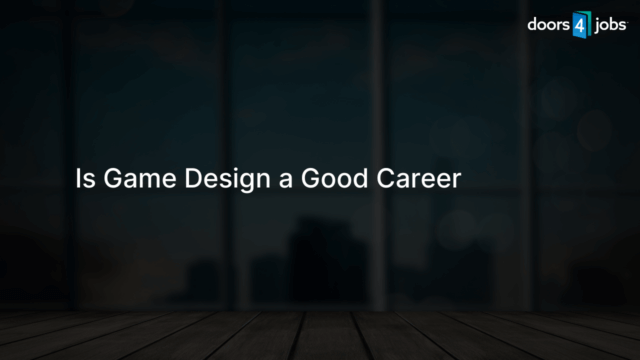Yes, Product Design is a good career choice for those who are creative, enjoy problem-solving, and have strong technical skills. With a high demand for skilled professionals, this career offers good job prospects, competitive salaries, and opportunities to work on innovative projects.
High Demand and Job Prospects
Product Design as a career is very much in demand due to the constant need for innovation and improvement of products. Companies ranging from startups to Fortune 500 corporations seek skilled product designers to help them create market-leading and efficient products.
Range of Industries
Product designers can work in various industries, such as automotive, consumer electronics, fashion, furniture, and more. This diversity of opportunities allows designers to explore their interests and find their niche.
Earning Potential and Job Satisfaction
A career in Product Design offers competitive salaries, with an average annual income in the United States being around $75,000. Salaries can vary based on factors like experience, location, and company size. Additionally, product designers often express high job satisfaction due to the creative and impactful nature of their work.
Advancement Opportunities
Over time, product designers have the opportunity to advance into managerial and executive roles. By gaining experience and building a strong portfolio, senior positions such as design director or creative director can open up, which usually come with increased responsibility and higher salaries.
Constant Learning and Development
As a product designer, you will continually refine your skills through practical application and learning about new materials, manufacturing processes, and technologies. This ongoing growth ensures that your career stays engaging and relevant as industries evolve.
Expertise in Design Tools
Product designers are proficient in using various design tools such as CAD software, 3D modeling, animation, and rendering programs. Developing expertise in these tools not only boosts your design capabilities but also your professional value.
Creative Impact on Society
A career in Product Design provides you the chance to make a tangible impact on people’s lives by designing products that cater to their needs, solve problems, and improve their overall experience. Your creativity and ingenuity can contribute to a better, more sustainable, and innovative world.
Creating Long-lasting Products
Including sustainable design practices in your work can lead to products that have a minimal environmental impact, last longer, and promote a circular economy, ultimately benefiting society as a whole.
Collaborative Work Environment
Product designers often work in teams, collaborating with professionals from different disciplines like engineering, sales, and marketing. This interdisciplinary approach promotes the exchange of ideas, creativity, and diverse perspectives, ensuring the development of well-rounded products.
Fostering Innovation and Entrepreneurship
Product Design as a career can also nurture your entrepreneurial spirit. Many product designers choose to leverage their skills and experiences to start their own design consultancy or launch innovative products through their own start-ups. This enables them to have a direct influence on the products they create and pursue their passion for design on their terms.
Educational Background and Skillset
To pursue a career in Product Design, it is advisable to have a strong foundation in design principles, manufacturing techniques, and material properties. A bachelor’s degree in product design, industrial design, or a related field is often preferred by employers. However, a combination of education and hands-on experience can also be valuable in the job market.
Continuing Education
Staying updated with current design trends, technology advancements, and new materials is essential in this dynamic field. Many product designers invest in their professional development through online courses, workshops, and conferences to stay ahead of the curve and enhance their skillset.
Networking and Building a Portfolio
To succeed in the competitive landscape of Product Design, it’s crucial to build a strong network and showcase your work through a diverse, well-rounded portfolio. Actively participating in design communities, attending industry events, and sharing accomplishments on social media can help in expanding your network and strengthening your personal brand.
Collaborations and Freelance Projects
Working on freelance projects or collaborating with other designers and companies can help you gain practical experience, effectively demonstrate your capabilities to potential employers, and add depth to your design portfolio.
The Decision to Pursue Product Design
Ultimately, deciding whether Product Design is the right career path for you depends on your passion for creativity, your ability to problem-solve, and your willingness to embrace challenges. Assess your interests, strengths, and long-term goals to determine if this fulfilling and ever-evolving profession aligns with what you’re seeking in a career.
FAQs about a Career in Product Design
Explore this list of the most frequently asked questions to gather additional insights into the Product Design industry and learn if it’s the right career choice for you.
What is the difference between Product Design and Industrial Design?
Product Design mainly focuses on the development of physical objects, prioritizing functionality, ergonomics, aesthetics, and user interaction. Industrial Design, on the other hand, encompasses Product Design but also covers broader aspects such as systems design, service design, and manufacturing processes.
What skills do product designers need to be successful?
A successful product designer should have strong creative and technical abilities, adept at sketching, 3D modeling, rendering, and using design software like CAD. Other essential skills include problem-solving, effective communication, collaboration, adaptability, a user-centric mindset, and a strong understanding of materials and manufacturing processes.
Is a degree necessary to become a product designer?
While a degree in Product Design, Industrial Design, or a related field can provide an advantageous foundation, it’s not always mandatory for a successful career. Companies may value hands-on experience, a well-rounded design portfolio, or a combination of education and professional background as much as a formal degree.
What types of companies hire product designers?
Product designers are in demand across numerous industries, including automotive, consumer electronics, fashion, furniture, medical devices, and more. Various types of companies, from small startups to large multinationals, employ product designers to help them create innovative, functional, and appealing products.
How can I build a strong product design portfolio?
To create a compelling portfolio, showcase a diverse range of work that demonstrates your design process, creativity, and adaptability. Include personal projects, student work, freelance assignments, and collaborative pieces. Emphasize your problem-solving approach, various stages of your work, and outcomes achieved. Additionally, maintain a professional digital presence for your portfolio, making it easy for potential employers to assess your skills and experience.











